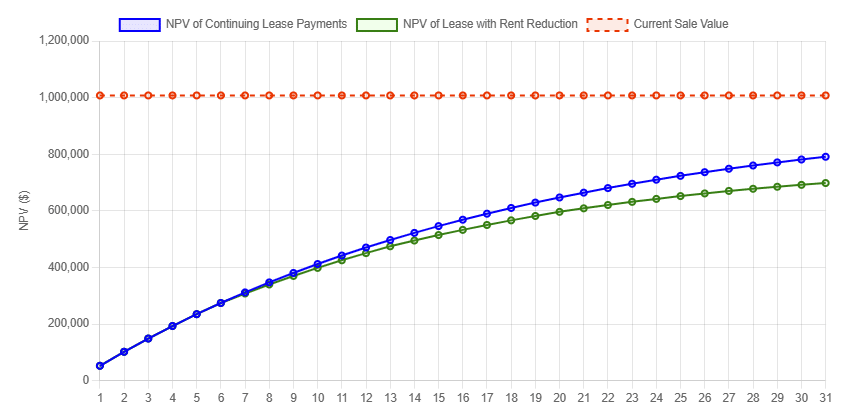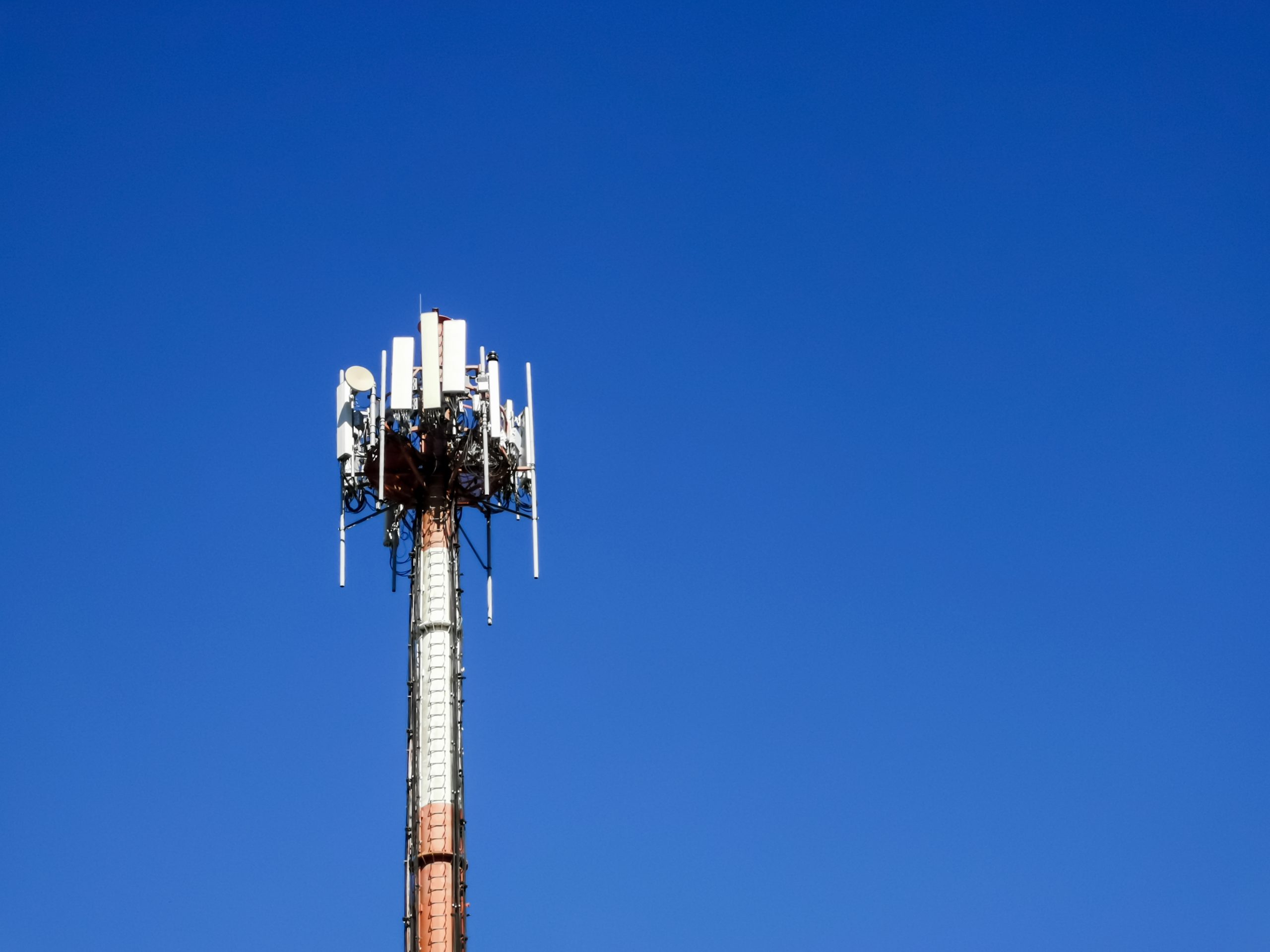A Cell Tower Lease Prepayment is when a Landlord decides to sell/assign their lease payments, for a period of time (typically 50 years to perpetual), for a lump Sum of Cash today. The lump sum is calculated based on a discounted cash flow over a specified term defined in the Purchase and Sale Agreement.

Cell tower lease prepayments provide landlords with immediate capital while offering various investment opportunities to buyers. Understanding the different structures—Perpetual Easement, Term Easement, Fee Simple Purchase, and Rent Assignment—can help both parties choose the arrangement that best suits their needs and risk tolerance. Whether seeking long-term security, flexibility, complete ownership, or a potentially high return on investment, there is a suitable option for every investor and landlord.
Converting a wireless lease agreement to a Utility Easement is often considered the safest method for executing a prepayment, ensuring that all parties are protected. However, there are multiple ways to structure these purchases, each with its own unique benefits and considerations. Below, we outline the most common structures used in cell tower lease prepayment transactions.
Contents
Cell Tower Lease Prepayment Explained
In the world of real estate and infrastructure investments, lease prepayments, particularly in the context of cell tower leases, offer a unique opportunity for both landlords and investors. For infrastructure funds like Wireless Equity Group, specializing in cell tower lease investments, understanding the intricacies of lease prepayment is crucial to making informed decisions that maximize returns while minimizing risks.
Now let’s delve into the concept of lease prepayment, the different types of cell tower lease transactions, and the strategic benefits for both landlords and investors.
What is Lease Prepayment in Cell Tower Leases?
A cell tower lease prepayment occurs when a landlord opts to sell their lease agreement for a lump sum of cash. This lump sum represents a discounted cash flow over a defined period, as outlined in the Purchase and Sale Agreement. Essentially, landlords are trading future rental income for immediate capital, which can be reinvested or used for other purposes. This type of transaction is particularly appealing in the infrastructure sector, where predictable cash flows and long-term investment horizons are key.

Types of Cell Tower Lease Transactions
When it comes to cell tower lease prepayments, various transaction structures are available, each with its own set of benefits and risks. Understanding these different types can help both landlords and investors make choices that align with their financial goals and risk tolerance.
- Perpetual Easement. A perpetual easement is one of the most secure forms of lease prepayment for investors. In this arrangement, the investor acquires an easement on the property that lasts for 99 years or more, often with the option to extend for additional 99-year terms at a nominal fee. This type of transaction essentially gives the investor near-permanent control over the lease, making it an attractive option for those seeking long-term, stable returns. For landlords, a perpetual easement provides a significant lump sum payment upfront, while the property remains theirs to manage in other capacities.
- Term Easement. A term easement is similar to a perpetual easement but with a fixed duration, typically ranging from 55 to 98 years. Unlike perpetual easements, term easements revert the lease payments back to the landlord at the end of the agreed-upon period. This allows landlords to regain control of the lease in the distant future, providing some flexibility while still receiving an immediate lump sum payment. For investors, term easements offer a balanced risk-reward scenario. They secure a long-term income stream, albeit for a finite period, and often include provisions such as the Right of First Refusal (ROFR). The ROFR clause allows investors to repurchase the lease should the landlord decide to sell it again in the future, giving them some degree of ongoing control.
- Fee Simple Purchase. A fee simple purchase is the most comprehensive form of real estate transaction, where the investor acquires full ownership of the property, including the land and any improvements, in perpetuity. This type of transaction is akin to a standard real estate deal, with the investor gaining title to the property and all associated rights. For landlords, selling their property through a fee simple purchase means a complete transfer of ownership. They receive a large lump sum but lose all future rental income and control over the property. This option is best suited for those looking to fully divest from the property and move on to other opportunities. Investors favor fee simple purchases when they seek absolute control and long-term security. Owning the property outright allows them to manage it as they see fit, including renegotiating leases, adding new tenants, or even selling the property at a future date for a profit.
- Rent Assignment (Lease Purchase and Assignment – LPA). Rent assignment, also known as Lease Purchase and Assignment (LPA), is the riskiest form of lease prepayment for investors. In this structure, the investor purchases the right to receive rental payments, but the landlord retains ownership of the property. Importantly, this type of transaction does not grant the investor an easement or any property rights, leaving their investment vulnerable in the event of landlord default. For landlords, rent assignment provides a quick influx of cash without relinquishing control of the property. However, it also places the investor in a precarious position, as they have no recourse if the landlord defaults on their obligations. Due to this risk, investors generally only pursue rent assignments when the potential returns are exceptionally high and justify the inherent risks.
Strategic Benefits of Lease Prepayment for Landlords and Investors
Understanding the different structures of cell tower lease transactions is essential for both landlords and investors to make strategic decisions. Each option comes with its unique set of advantages and considerations, depending on the goals and circumstances of the parties involved.
For Landlords
- Immediate Capital: Lease prepayment provides landlords with an immediate cash influx, which can be used to fund new investments, pay off existing debt, or cover other financial needs.
- Risk Mitigation: By selling the lease, landlords transfer the risk of lease decommissioning, rent reductions, tenant issues, or market fluctuations to the investor.
- Financial Flexibility: The lump sum payment offers financial flexibility, allowing landlords to diversify their investment portfolio or invest in higher-yielding opportunities.
For Investors
- Long-Term Income: Lease prepayment, especially through perpetual or term easements, provides investors with a stable, long-term income stream. Additionally, by obtaining thousands of leases with one lessee, the costs of ongoing lease negotiations are severely reduced, allowing increased net returns for all parties.
- Portfolio Diversification: Acquiring cell tower leases allows investors to diversify their portfolios into infrastructure assets, which can offer more predictable returns compared to other real estate investments.
- Strategic Control: Out investment fund typically purchases cell tower lease assets in a region, and then actively purchases all neighboring leases within the area. By taking strategic control over all available space in a market, if a carrier decides to decommission a site, our firm retains strategic control over pricing to mitigate risk.
Conclusion: Making Informed Decisions in Lease Prepayment
Lease prepayment in cell tower leases is a sophisticated financial strategy that offers substantial benefits for both landlords and investors. By understanding the nuances of different transaction structures—whether it’s perpetual easements, term easements, fee simple purchases, or rent assignments—parties can make informed decisions that align with their financial goals.
For infrastructure funds like Wireless Equity Group, specializing in cell tower lease investments, leveraging these transactions effectively can lead to robust portfolio growth and long-term financial stability. Whether you’re a landlord looking to unlock immediate capital or an investor seeking a reliable income stream, understanding the dynamics of lease prepayment is key to optimizing your financial outcomes.
At Wireless Equity Group, we pride ourselves on our expertise in navigating the complexities of cell tower lease investments. Our goal is to ensure that every transaction we engage in is strategically aligned with the best interests of all parties involved, providing value not just today, but for decades to come. If you’re considering a lease prepayment or looking to invest in cell tower leases, our team is here to guide you through every step of the process.




